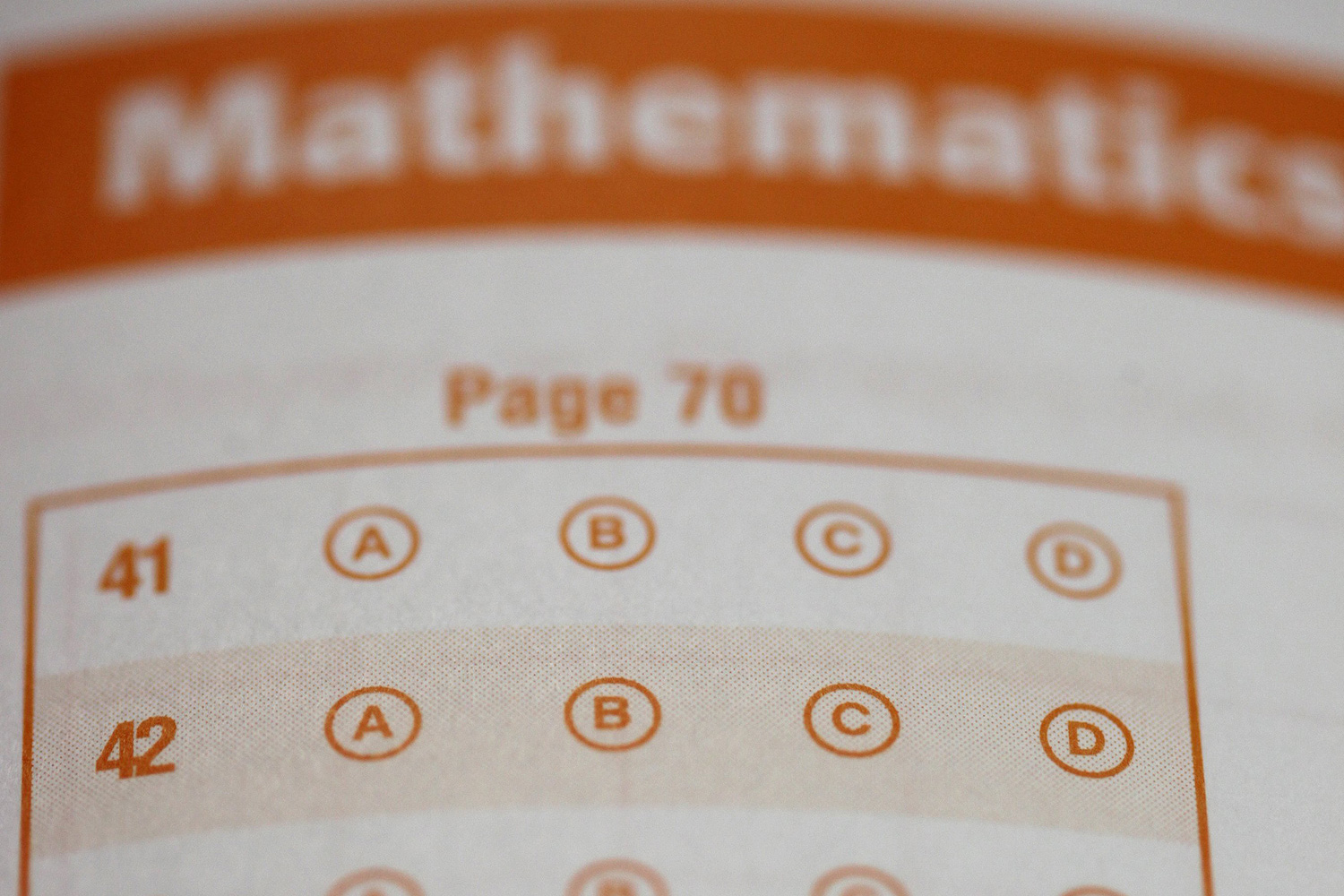Catalyst Chicago's Sarah Karp and WBEZ's Becky Vevea have been collaborating on an interesting education series that probably deserves more attention. It's about alternative high schools—or "options schools"—in Chicago, many of which are for-profit schools, with half-day sessions, highly accelerated class-credit schedules, and substantial online components, targeted towards high-school dropouts.
Oh, and: "Graduates are awarded diplomas from either the last school they attended or the neighborhood high school near where they live."
And there's much more, as you'd expect from an expansion that brought up the total number of seats in options schools to 12,000. The whole thing is well worth reading/listening to. But that part about diplomas was the most interesting to me, because of a long interview I did with University of Chicago Nobel laureate James Heckman and his co-authors/grad students, Tim Kautz and John Eric Humphries, on the GED.
Conceptually, the GED and options schools are somewhat similar—offering young people (or in the case of the GED, sometimes not-so-young) an alternative path towards getting the equivalent of a high-school diploma. In the case of the GED, it's a test that demonstrates that, no matter what educational history the taker has, he or she has the knowledge of a high-school graduate.
In the case of the options schools, it's that someone can obtain that knowledge and skill set on a different track, through different means. And in her most recent piece in the series, Karp finds a couple students for whom an option school would seem to be appropriate—an 18-year-old and a 20-year-old who "left their former high schools…because they were getting into fights and other trouble."
But it's odd that students can get a diploma from a regular high school through this route—despite, you know, not attending it. And that's why I thought of the research of Heckman, Kautz, and Humphries, which is centered around the idea that a four-year high-school diploma means something very specific, and it isn't just (or even most importantly) a set of knowledge or academic skills. It's the process of getting the diploma itself.
Heckman is one of a number of people calling attention to the importance of "non-cognitive skills." It's not a complicated idea. When I apply for jobs, I'm not under the impression that listing my college degree in English is of any importance to employers, at least in the sense that they have any desire for an employee who read a bunch of dead authors for four years. It does, however, represent that I showed up and did what was asked of me. A degree of any kind represents a certain amount of commitment and diligence.
What is complicated is the data mining that Heckman, Kautz, and Humphries did to put numbers to that intuition. And what they found was that the GED was effective in its original intention, for very interesting reasons (emphasis mine):
The GED does a pretty good job of measuring the minimum competencies in reading and writing and mathematics. If you’re asking it can be potentially paired with a larger program to make sure those minimum competencies are met, I think that’s a real possibility.
But it’s also what the original GED was for in many ways. As we had World War II veterans returning, it was really that we believed these veterans had matured and learned a lot about life through the wartime rigor, and had developed discipline and types of non-cognitive skills we think might be developed by being in the Army. But we needed to make sure that before we issued wartime diplomas, that these veterans could at least read and do math.
In other words, that piece—showing up, doing what's asked of you—came through the military. The GED added a piece on top of that, but it didn't represent the full import of a high school diploma. And, as Heckman says, they found evidence of this:
I realized that the GED was not really that effective. It took me awhile to understand what was going on. The GED [recipients] really were smart, as smart as high school graduates who didn’t go on to go to college. But they were performing at the level of dropouts.
This represents a real concern: If high school students who are intellectually capable of getting a diploma are lured into getting a GED instead, they're missing much of the value of the diploma. And at the time they might not even realize it.
Which brings us back to Karp and Vevea's reporting. The idea comes up in it: "There’s a whole camp of people who believe if students can prove they know the material, they should be able to do so and move on." And CPS numbers provided to Vevea suggest that about 20 percent of options-school students "appear to be on-track or young enough to enroll in a traditional school or full-day program."
The options schools aren't GEDs. They require attendance; they require homework. But they don't necessarily require as much attendance, or as much homework. Sometimes significantly less, as Karp found. Yet the diploma they come out with is the diploma they'd get from a full-day, regular high school.
That's why the diploma aspect of Vevea and Karp's reporting jumped out at me. The work of Heckman, Humphries, and Kautz is, in part, about a very basic but difficult question: What is a high-school diploma? What should it represent—to students, to college admissions, to employers? Does it represent a canon of knowledge and academic abilities, be it Common Core or something else? Or should it represent a much broader set of expectations? Those are the questions options schools will have to answer.



